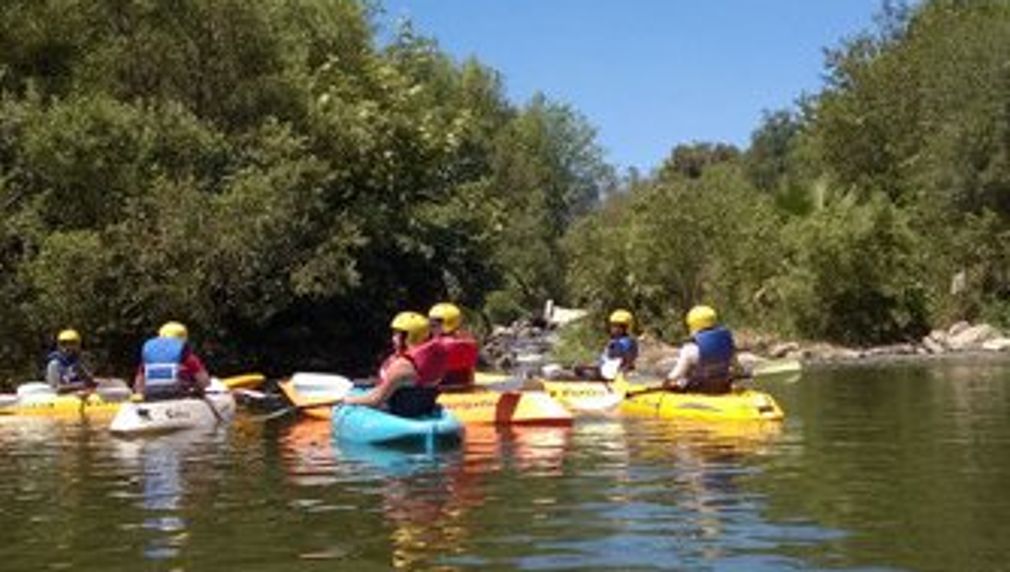The Los Angeles Service Academy
We seek philanthropic support to fund LASA's ongoing operations and next cohort of student participants in the 2016-2017 programmatic year. Specifically, LASA brings together high school juniors from all over Los Angeles County for an intensive week in the summer, plus one Saturday per month during the school year. Each meeting combines experts with field trips tied to themes critical to civic life in LA: transit, governance, water, the LA River, the harbor, law enforcement, food/housing, etc.

In what areas of Los Angeles will you be directly working?
Central LA
East LA
San Gabriel Valley
San Fernando Valley
South LA
Westside
South Bay
City of Los Angeles
LAUSD
How do you plan to use these resources to make change?
Conduct research
Engage residents and stakeholders
Expand a pilot or a program
Make connections across regions, neighborhoods, schools, backgrounds.
How will your proposal improve the following CONNECT metrics?
Rates of volunteerism
Attendance at cultural events
Number of public transit riders
Participation in neighborhood councils
Government responsiveness to residents’ needs (Dream Metric)
Attendance at public/open streets gatherings (Dream Metric)
Describe in greater detail how you will make LA the best place to CONNECT.
LASA BEGINS WITH QUESTIONS.
How does a city run? How does a vast metropolitan region like Los Angeles work? Which institutions are responsible for moving water, people, food, and power from points A to points Z? How are such agencies funded? Who runs them? How can neighborhoods be made more livable? What does an elected official do all day? What role do cultural institutions play in the life of greater Los Angeles? What about businesses and non-profits? What are the potential career paths for young people interested in civic, civil, and public service in the Los Angeles Basin? These are among the thousands of questions that students have about the city and region in which they live. There are a million more that they would have if they knew more about place, region, and history.
LASA participants (all high school juniors) will gain the experience and knowledge necessary to better understand the intricacies – infrastructural, historical, political, economic, and otherwise – of the region in which they live, and will build lasting bonds of friendship, camaraderie, and work experience with a diverse group of peers they connect with over the course of a year. Over time, LASA will change the lives and career paths of hundreds of high school students in the region and will become an agent of change, community building, and connection throughout Los Angeles.
For example, a perennial LASA theme is water: where does it come from? Who buys and sells it? How is it delivered to cities, regions, neighborhoods, homes? In answering these questions, LASA's students meet with officials from agencies such as MWD and DWP and then visit water treatment and delivery facilities to see firsthand the complex processes at work in watering such a vast region.
Garnering such knowledge will allow the students to become more civic minded and engaged with a critical aspect of life in the Los Angeles Basin. Over the year, LASA grapples with other issues equally important to the future of the region and to every Southern California resident. These include investigations of law enforcement and police oversight, business and entrepreneurialism, sports and entertainment, technology, governance and electoral politics, the harbor and the basin's rivers, food security, housing access, museums and cultural institutions.
In studying these issues, young people from across the entire basin will connect with one another and gain confidence in their roles as agents of change.
Please explain how you will evaluate your work.
We approach evaluation in two ways. One, we monitor the program by way of annual evaluations from participants. This process is a way of seeking ongoing feedback in order to make regular, modest adjustments to the program.
Second, and more important, we have always maintained that the best measure of LASA's effectiveness will be evident in years ahead. As our students graduate from high school, move on to college (which we track), and return to Los Angeles to begin careers, we believe that their time with LASA will enable them to become effective agents of change. As they become increasingly engaged in civic life, our hope is that they will draw upon productive connections to one another, connections initially fostered when they were sixteen years old.
How can the LA2050 community and other stakeholders help your proposal succeed
Money (financial capital)
Volunteers/staff (human capital)
Publicity/awareness (social capital)
Community outreach
Network/relationship support
Quality improvement research